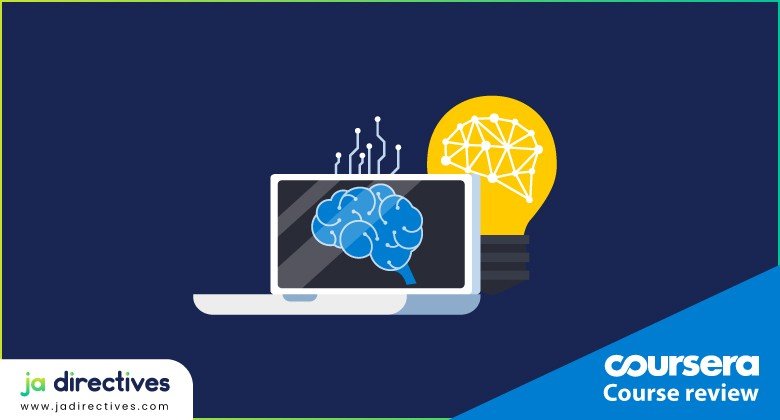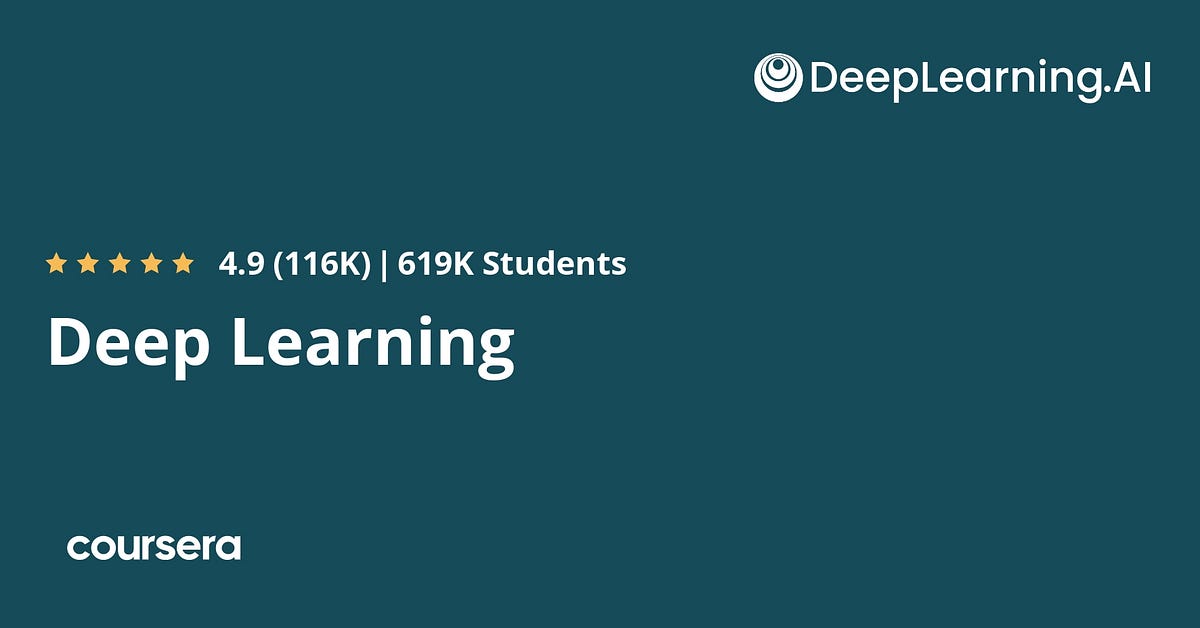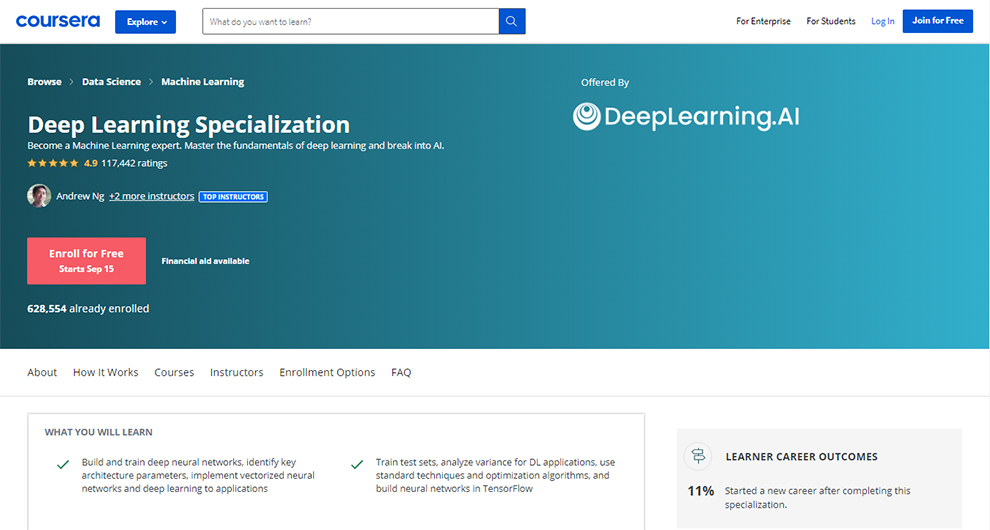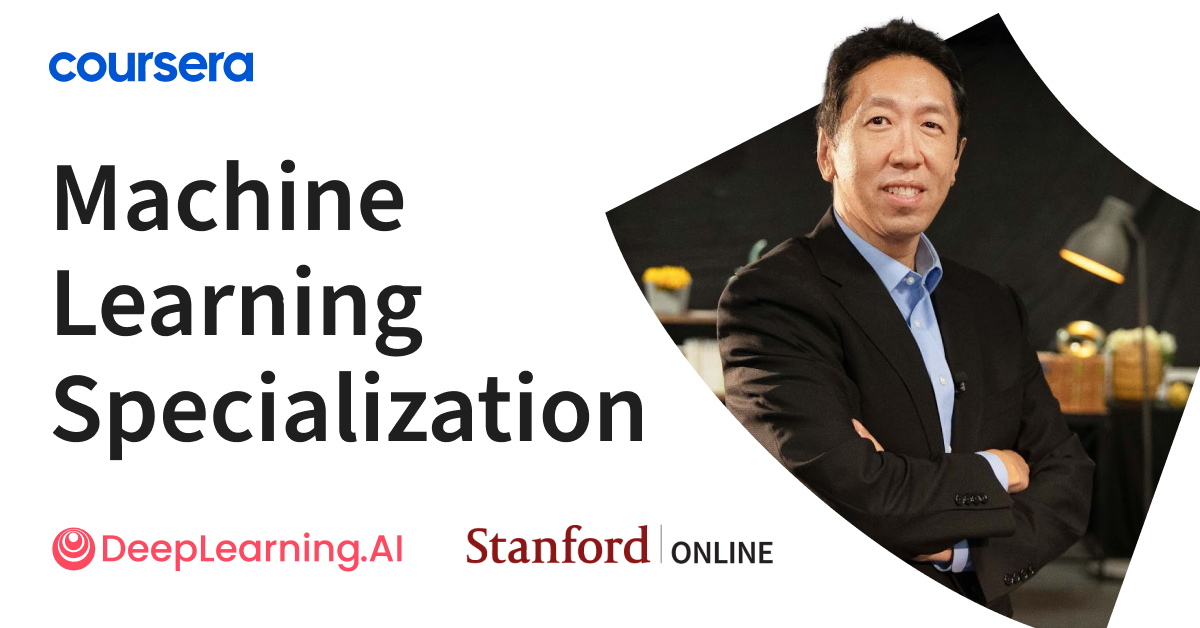Coursera Deep Learning Specialization Review
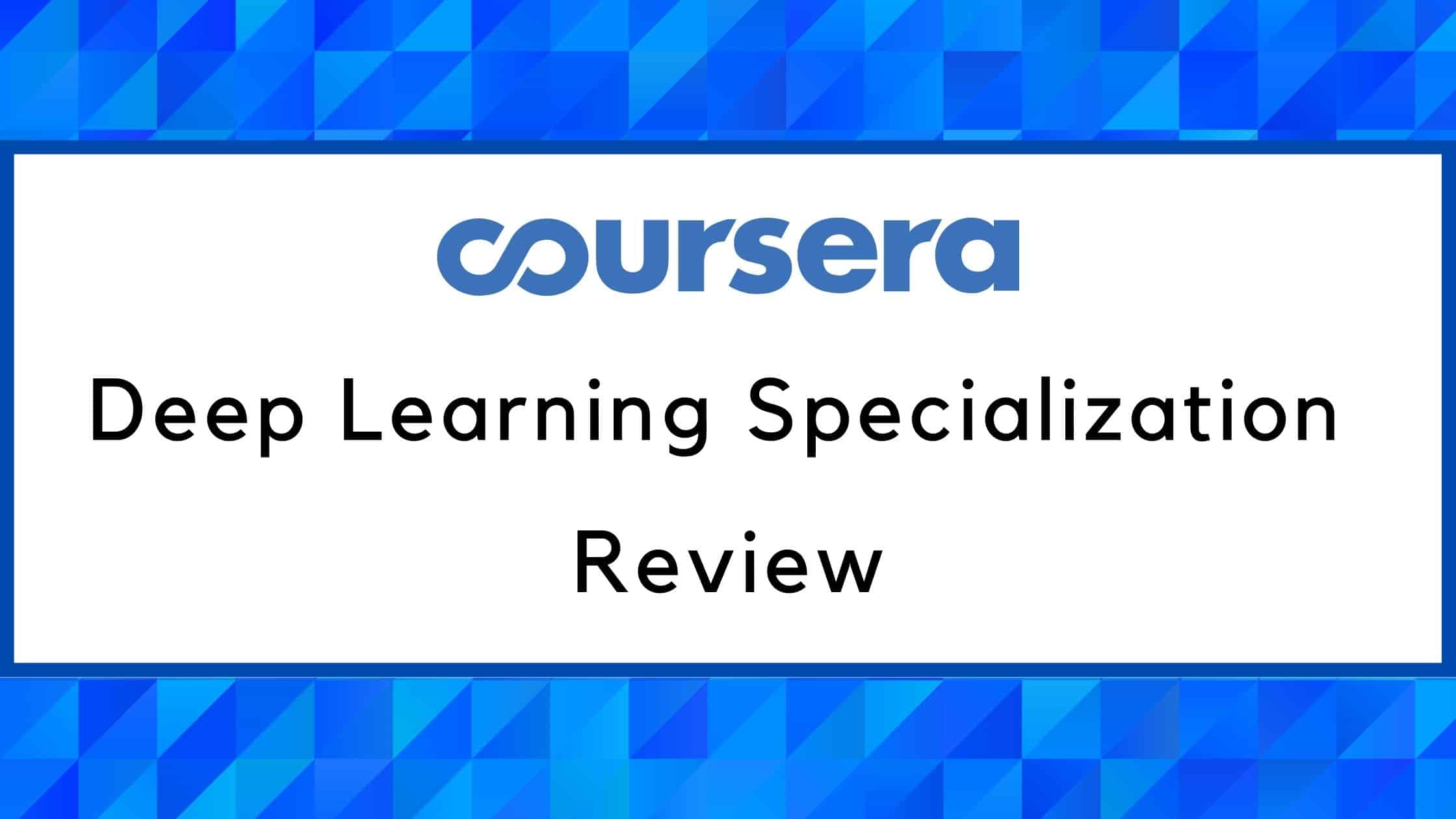
The Coursera Deep Learning Specialization, spearheaded by Andrew Ng of Stanford University, remains a cornerstone in online education for aspiring AI professionals. However, with the rapid evolution of the field and the proliferation of alternative learning resources, a critical reevaluation of its continued relevance and effectiveness is warranted.
Is it still the gold standard, or has it been surpassed by more specialized and up-to-date offerings?
This article delves into the current state of the Deep Learning Specialization, exploring its strengths, weaknesses, and its position within the broader landscape of AI education.
Deep Learning Specialization: A Deep Dive
The Deep Learning Specialization, consisting of five courses, provides a foundational understanding of neural networks and deep learning. According to Coursera's official data, the specialization has enrolled millions of learners globally, indicating its widespread appeal. It covers topics ranging from neural network basics to convolutional neural networks (CNNs), recurrent neural networks (RNNs), and advanced optimization techniques.
Andrew Ng's clear and engaging teaching style has consistently been praised by learners, making complex concepts more accessible. The Specialization also incorporates practical programming assignments using Python and TensorFlow, allowing students to gain hands-on experience.
Strengths of the Specialization
One of the key strengths lies in its comprehensive coverage of fundamental deep learning concepts. The Specialization provides a strong foundation for understanding the core principles behind various neural network architectures.
Andrew Ng’s focus on intuition and practical application, rather than solely on mathematical theory, makes it particularly valuable for beginners. The programming assignments, designed to reinforce the learned concepts, are also highly regarded.
Furthermore, the Specialization's structure, progressing from basic to more advanced topics, provides a logical learning path. This allows students to build their knowledge incrementally.
Weaknesses and Areas for Improvement
Despite its many strengths, the Deep Learning Specialization faces certain challenges in maintaining its relevance. The rapid advancements in deep learning necessitate constant updates to the curriculum.
Some critics argue that the Specialization relies heavily on TensorFlow 1.x, an older version of the library. While still valuable, proficiency in TensorFlow 2.x or PyTorch is increasingly expected in the industry.
Additionally, the Specialization touches only briefly on emerging areas such as transformers and attention mechanisms, which have become crucial in natural language processing and other fields.
"The course is great for beginners, but it lacks depth in certain areas and needs updating to reflect the current state of deep learning," says one Coursera reviewer.
Alternative Learning Resources
The Deep Learning Specialization is no longer the only option for learning deep learning online. Numerous alternative resources have emerged, offering different approaches and specializations. The fast.ai course, for example, emphasizes a top-down approach, enabling students to build working models quickly.
Other platforms like Udacity and edX offer specialized programs in areas such as computer vision and natural language processing. These programs often incorporate the latest research and tools.
Many universities also provide free or low-cost online courses covering deep learning topics. These courses can offer a more rigorous and theoretical foundation.
The Future of the Specialization
To maintain its position as a leading resource, the Deep Learning Specialization needs to adapt to the evolving landscape. Updating the curriculum to incorporate TensorFlow 2.x and address emerging areas such as transformers is crucial.
Andrew Ng and his team should consider adding more advanced modules that delve deeper into specific deep learning applications. Furthermore, integrating more recent research papers and datasets could enhance the learning experience.
Ultimately, the Deep Learning Specialization remains a valuable starting point for those seeking to enter the field of AI. However, continuous improvement and adaptation are essential to ensure its continued relevance and effectiveness in the years to come.

